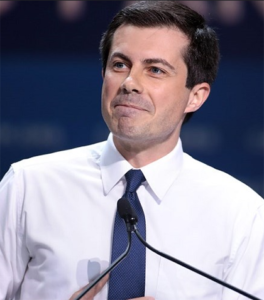Falling migration could hit US economy
Net international migration into the US has hit its lowest level of the decade between 2018 and 2019, according to new data from the US Census Bureau.
Net migration added 595,000 to the US population between 2018 and 2019, a marked decrease from the decade high of 1,047,000 between 2015 and 2016.
 States most affected by the trend are Florida, California, Texas, New York and Massachusetts, which usually attract the most migrants from abroad, according to the Census Bureau.
States most affected by the trend are Florida, California, Texas, New York and Massachusetts, which usually attract the most migrants from abroad, according to the Census Bureau.
Growth in net international migration has been declining since 2016 when President Donald Trump was elected.
The data also shows more immigrants are coming from China and India, while immigration from Mexico has dropped significantly.
Meanwhile, Democratic presidential hopeful Pete Buttigieg has released his proposals on immigration designed to support the US economy.
The South Bend, Indiana mayor cited a “growth problem” in the US that could lead to a shortage of 8 million workers by 2027, according to a March report by the Migration Policy Institute (MPI).
“In 2018, births hit a three-decade low. Our population is rapidly aging,” Buttigieg’s policy paper says.
“Absent increases in immigration, GDP growth will decrease by 1.4 percent a year over the next decade. And it’s not only a rising population that increases GDP; diversity itself is a driver of economic growth,” it says.
The MPI report says that as the US workforce ages, baby boomers retire, and birth rates decline, the US is facing an estimated shortfall of 8 million workers between now and 2027.
“At the same time, the US economy is becoming ever more knowledge-based. Having a marketable postsecondary credential, whether an academic degree or a professional certification or license, has become more of a necessity to secure a job that pays a family-sustaining wage,” the report says.
Amid these economic changes, the report says, immigrant-origin adults – that is, immigrants and their US -born children – are projected to be the primary source of future labour-force growth.
Yet about 30 million of the 58 million immigrant-origin adults in the country as of 2017 did not have a postsecondary credential, representing 30 percent of all US adults without one.
“These immigrants and their children are thus an important target group for efforts by governments, educational institutions, civil society, and employers to boost the credential attainment of US workers,” the report says.
The MPI report gives a profile of immigrant-origin adults without postsecondary credentials, including a look at key sociodemographic characteristics, geographic distribution, and factors such as English proficiency and legal status that can affect their access to workforce programs.
It also looks at the labour-market returns of non-degree credentials, finding that immigrant-origin adults who hold such certifications or licenses have higher rates of labour-market participation, higher wages, and lower unemployment than counterparts who lack them.
“Helping a significant share of these 30 million immigrant-origin adults obtain postsecondary credentials is critical tool in meeting national and state education goals, addressing current and projected labour shortages, and raising labour productivity,” the report’s authors say.
In his policy proposal, Mr Buttigieg promised action on a path to citizenship for undocumented immigrants within the first 100 days of his administration. Until new laws are enacted, he said he would restore temporary protections for undocumented immigrants.
Mr Buttigieg also proposes closing all for-profit detention facilities and promoting a community-based case management program that was begun under the Obama administration but ended by the Trump administration.
Under his administration, immigrants who are not a threat to public safety would be released on recognisance or to an alternative detention program.
Mr Buttigieg said he would create an independent immigration court system, separating it from the political oversight of the attorney general.
“We must recognize the great contributions of immigrants and create an immigration system that meets the needs of our nation now and in the years ahead,” he said.
Mr Buttigieg dubbed his plan “‘I was a stranger and you welcomed me’: An Immigration Policy for a New Era” – a reference to a Bible verse, Matthew 25:35-40, that he regularly quotes on the campaign trail.












